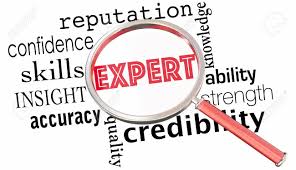
Principal speaker
Associate Professor Sama Low Choy
Expert knowledge can be valuable in many quantitative analyses. In mathematical models experts can help estimate specific parameters, such as rates, provided as input to the model. In Bayesian statistics, expert knowledge can help formulate informative priors to supplement empirical data. In some cases, such as risk assessment, expert knowledge may be the only information at hand, as a basis for important decisions or designing future studies. This workshop provides a very practical approach to eliciting information from experts. We start with an exercise that then provides material for dissecting the experience, and understanding that the bulk of the work in conducting elicitation is in the preparation. What appears to be a simple chat between a modeller and an expert can in fact be laced with quantitative nuances, and techniques to sidestep heuristics and biases. We will deconstruct a hypothetical interview to demonstrate how a 6-step process behind the scenes has supported design and hence conduct of elicitation via interview:
Clarify the target of elicitation - What does the modeller want to find out?
Probe what information is available - What does the expert know that is relevant?
How the elicited information will be used - Why does the modeller need this information? How does it fit into a quantitative model?
How will you go about quantifying the expert's knowledge - Choose a strategy for eliciting the number, and enough information to provide a plausible range of values for this number.
How will you make sure that these numbers accurately reflect what the expert knows?
Practical issues of implementation: enlistment, which experts?, format, preparation including motivation and training, technology.
Prerequisite: none, although this workshop will be of most use to a researcher who has some idea of information they would like to elicit. Related RED Workshops: Attending the workshop on Interviewing skills (Judy Rose) provides a good background in general interviewing techniques, which are not the focus of this workshop, which concentrates on specific elicitation skills to quantify expert knowledge. Reading: A technical introduction to how to elicit expert knowledge into Bayesian priors is provided by Low-Choy, O'Leary & Mengersen (2009, Ecology, 90(1): 265). This refers to several case studies including the rock wallaby case study, which is explained in simple language for ecologists in a book chapter in Expert Knowledge and its uses in Landscape Ecology (eds, Perera, Drew & Johnson). Format: Examples of interviews, demonstrating good and poor practices of elicitation, followed by dissection of the components.
Event categories
RSVP
RSVP on or before Monday 17 May 2021 09.53 am, by email RED@griffith.edu.au , or via https://events.griffith.edu.au/gRxW9Z